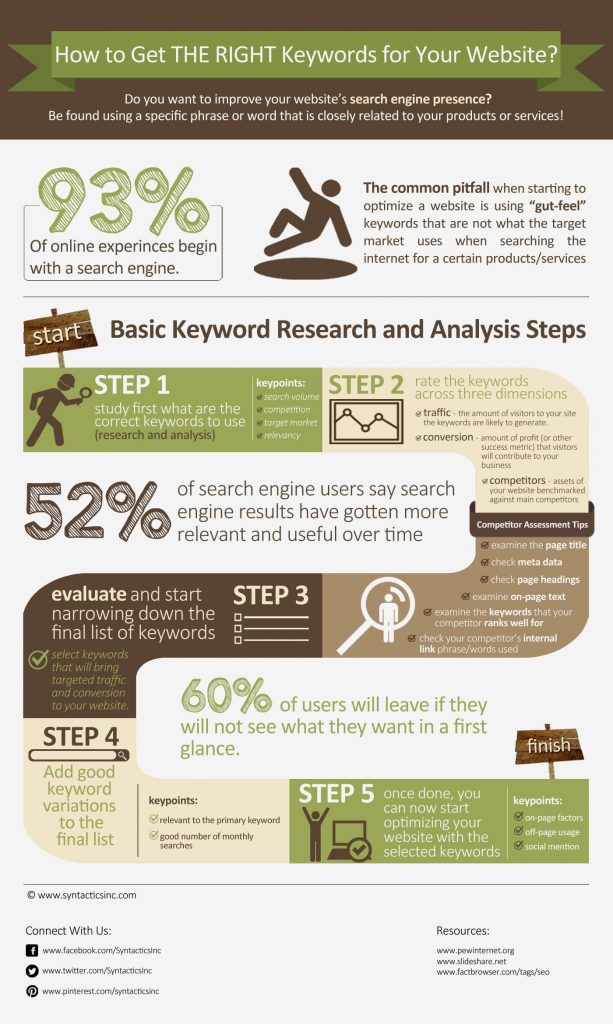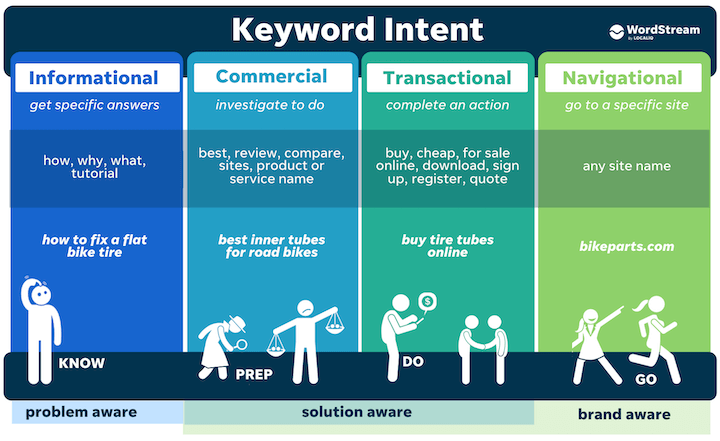Unlock the secrets to selecting the perfect keyword phrases for your content to boost SEO and drive traffic to your site.

Image courtesy of via DALL-E 3
Table of Contents
- Introduction: What’s So Great About Keywords?
- Step One: Finding the Right Words
- Choosing the Best Keywords
- Step Three: Where to Put Your Keywords
- Step Four: Using Keywords Naturally
- Keeping Track of Your Keywords
- How Keywords Help Your Blog Grow
- Keeping Up with Changes
- Conclusion: Be a Keyword Pro
- Frequently Asked Questions (FAQs)
Introduction: What’s So Great About Keywords?
Keywords are like hidden treasures in the vast landscape of the internet, waiting to be discovered by eager explorers. For anyone who writes blogs or creates content online, these keywords are essential tools that can make a world of difference in how many people find and engage with their work. Let’s delve into why keywords are so important and how they can help you unlock the full potential of your online presence.
Word Treasure
Think of keywords as the special words that act as a map guiding others to your blog or website. These are the words that people type into search engines like Google when they are looking for something specific. By incorporating the right keywords into your content, you increase the chances of your blog being discovered by those who are interested in what you have to say.
Brainy Blogging
Bloggers rely on keywords to make their blogs visible in the vast sea of online content. Imagine having a blog full of fantastic stories, but no one knows it exists because they can’t find it in a search. Keywords help bridge this gap by connecting your blog to the right audience. They act as signposts, directing readers to your virtual home where they can enjoy your posts and engage with your ideas.
Step One: Finding the Right Words
When it comes to finding the perfect keywords for your blog posts, there are several tools available to make the process easier. One of the most popular tools is the Google Keyword Planner. This tool allows you to enter different keywords or phrases related to your blog topic and provides you with valuable information on search volume, competition level, and suggested keywords.
Thinking Like a Detective
But tools can only take you so far. To truly find the right words for your blog, you need to put yourself in the shoes of your readers. Think about what they would search for when looking for information related to your blog topic. Consider the language they might use and the specific phrases they might type into a search engine. By thinking like a detective and understanding your audience, you can uncover the perfect keywords that will attract more readers to your blog.
Choosing the Best Keywords
When it comes to using keywords effectively, choosing the right ones is crucial. Here’s a guide on how to pick the keywords that will work best for you.

Image courtesy of www.syntacticsinc.com via Google Images
Popular vs. Specific
Keywords can be broadly categorized into popular and specific ones. Popular keywords are commonly used terms that many people search for. They can attract a lot of traffic to your blog, but they also face heavy competition. On the other hand, specific keywords are more niche-focused and target a smaller audience. While they may not bring in as much traffic, they can attract more relevant visitors who are interested in your specific content.
Checking Competition
Before finalizing your keyword choices, it’s essential to assess the competition for those keywords. Tools like Google Keyword Planner can help you determine how many other websites are using the same keywords. If the competition is too high, it may be difficult for your blog to rank highly in search results. In such cases, opting for more specific keywords with lower competition can be a strategic choice.
Step Three: Where to Put Your Keywords
Now that you’ve chosen the perfect keywords for your blog post, it’s time to understand where to strategically place them for maximum impact. By placing your selected keywords in the right spots, you can help search engines understand the content of your post better and improve its visibility to potential readers.
Headings and Titles
One essential spot to include your keywords is in the headings and titles of your blog post. Headings not only break up your content into digestible chunks for readers but also signal to search engines what your post is about. By incorporating your keywords into headings and titles, you make it clear to both readers and search engines what they can expect from your content.
In the Intro
Another key place to include your keywords is in the introduction of your blog post. Search engines often give more weight to words that appear near the beginning of a piece of content, so strategically placing your keywords in the intro can help boost your post’s visibility. Additionally, incorporating your main keywords early on can also entice readers to continue reading as they immediately understand the topic you’ll be discussing.
Step Four: Using Keywords Naturally
When you’re using keywords in your blog posts, it’s essential to do so naturally. Keyword stuffing, or putting too many keywords in your writing, can make it sound awkward and forced. Imagine repeating the same word over and over in a conversation—it doesn’t sound right, does it? The same goes for using keywords. It’s better to sprinkle them throughout your content in a way that makes sense and flows well.

Image courtesy of fruugo.medium.com via Google Images
Talking to Your Readers
Even though keywords are crucial for optimizing your blog for search engines, it’s important to remember that you’re writing for real people, not just algorithms. Your content should still be engaging, informative, and enjoyable to read. Think of your keywords as helpful signposts that guide readers to your blog, rather than the main focus of your writing. By striking a balance between using keywords effectively and maintaining a conversational tone, you can create valuable content that resonates with your audience.
Keeping Track of Your Keywords
Once you’ve selected and seamlessly integrated your keywords into your blog posts, it’s crucial to monitor their performance. Tracking your keywords helps you understand how well your blog is connecting with your target audience and gives you insights into what adjustments you might need to make. Here’s how you can keep track of your keywords effectively:
Checking Rankings
One way to measure the success of your keywords is to see where your blog ranks when people search for them. You can use tools like Google Search Console to check your position in search results. By monitoring your rankings regularly, you can identify any changes in visibility and take steps to improve your keyword strategy if needed.
Using Analytics
Another essential tool for tracking keyword performance is Google Analytics. This powerful platform provides detailed insights into how users discover your blog, including which keywords bring the most traffic. By analyzing this data, you can fine-tune your keyword strategy, identify high-performing keywords, and capitalize on emerging trends to attract more readers to your blog.
How Keywords Help Your Blog Grow
Keywords are like magic words that help people find your blog when they search online. By using the right keywords in your blog posts, you can attract more readers who are interested in what you have to say. Imagine having a secret code that leads people straight to your blog – that’s what keywords can do for you!

Image courtesy of www.elegantthemes.com via Google Images
Climbing the Ranks
When someone searches for something on the internet, search engines like Google show them a list of websites that are the most relevant to their query. By using the right keywords strategically in your blog posts, you can improve your chances of appearing higher on the search results page. This means more people will see your blog and click on it, helping your blog grow and reach a wider audience.
Keeping Up with Changes
In the world of blogging and online content creation, staying on top of the latest trends and changes is essential to keep your audience engaged and your content relevant. This also applies to the keywords you use to optimize your content for search engines. Let’s dive into the importance of staying updated with new keyword trends.
Adapting to Trends
Keywords are not set in stone; they can change based on what people are searching for at any given time. As new trends emerge and interests shift, certain keywords may become more or less popular. It’s crucial to regularly review and update your list of keywords to ensure they reflect the current search landscape.
Refreshing Content
One way to adapt to changing keyword trends is by refreshing your existing content with new keywords. If you have older blog posts that are still relevant but not performing as well in search results, consider updating them with fresh keywords. This can help give your content a new lease on life and attract more readers by aligning with current search trends.
Conclusion: Be a Keyword Pro
In this blog post, we’ve learned all about the power of keywords and how they can help your online content reach more people. To become a true keyword pro, remember these key points:

Image courtesy of www.wordstream.com via Google Images
Review the Steps
First, make sure to find the right keywords for your content. Utilize tools like Google Keyword Planner and think like a detective to understand what people are searching for. Next, choose the best keywords by balancing popularity and specificity, and check the competition to see how hard it will be to rank.
Once you have your keywords, strategically place them in your content. Use keywords in headings, titles, and introductions to optimize visibility.
Remember to use keywords naturally in your writing. Avoid keyword stuffing, and maintain a friendly tone that engages your readers.
Final Tips
As you continue on your keyword journey, here are a few additional tips to keep in mind:
Stay current with keyword trends by adapting to changes and refreshing your content with new keywords. This will help your blog stay relevant and competitive in search results.
Lastly, don’t forget to track your keyword performance using tools like Google Analytics. This will give you valuable insights into which keywords are driving traffic to your content.
By following these steps and tips, you’ll be well on your way to becoming a keyword pro and growing your blog’s success. Keep experimenting, learning, and refining your keyword strategies to reach even greater heights in the online world!
Want to turn these SEO insights into real results? Seorocket is an all-in-one AI SEO solution that uses the power of AI to analyze your competition and craft high-ranking content.
Seorocket offers a suite of powerful tools, including a Keyword Researcher to find the most profitable keywords, an AI Writer to generate unique and Google-friendly content, and an Automatic Publisher to schedule and publish your content directly to your website. Plus, you’ll get real-time performance tracking so you can see exactly what’s working and make adjustments as needed.
Stop just reading about SEO – take action with Seorocket and skyrocket your search rankings today. Sign up for a free trial and see the difference Seorocket can make for your website!
Frequently Asked Questions (FAQs)
What if I Can’t Find Good Keywords?
If you’re having trouble finding good keywords, there are a few other methods you can try. One option is to look at your competitors’ websites and see what keywords they are using. You can also use Google Autocomplete to generate keyword ideas based on what people are searching for. Additionally, you can brainstorm with friends or colleagues to come up with new and unique keyword ideas.
How Many Keywords Should I Use?
The key to using keywords effectively is to find a balance between using too few and using too many. Ideally, you should aim to use 2-3 primary keywords in your blog post, focusing on ones that are relevant to your content. It’s also a good idea to sprinkle in some secondary keywords throughout your post to add variety and help with search engine optimization.
Can I Change My Keywords Later?
Yes, you can definitely change your keywords later on if you find that they are no longer effective or if new trends emerge. It’s important to stay adaptable and update your keywords as needed to ensure that your blog remains relevant and continues to attract readers. Keeping an eye on changing trends and regularly refreshing your content with new keywords can help keep your blog at the top of search engine results.







